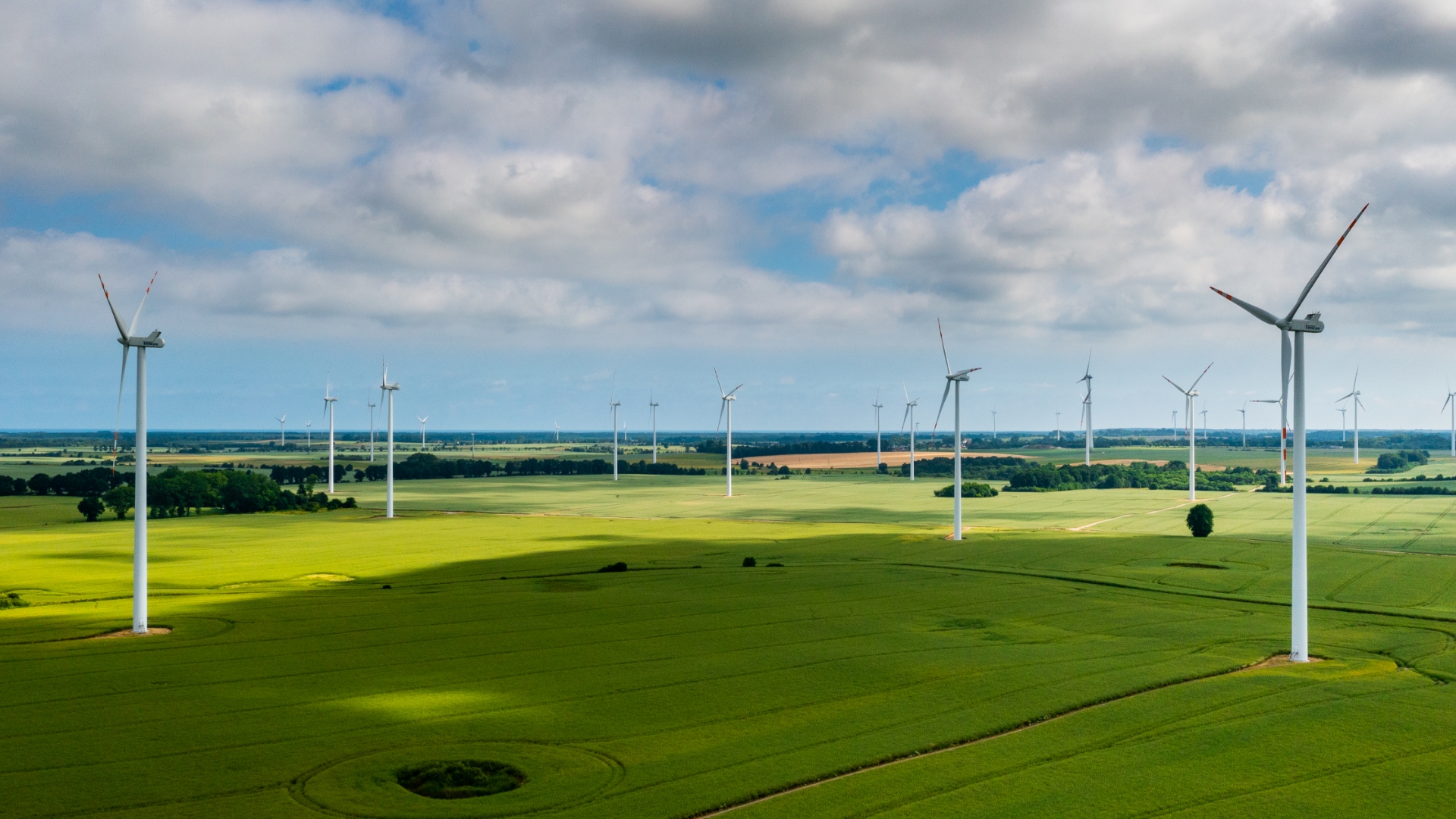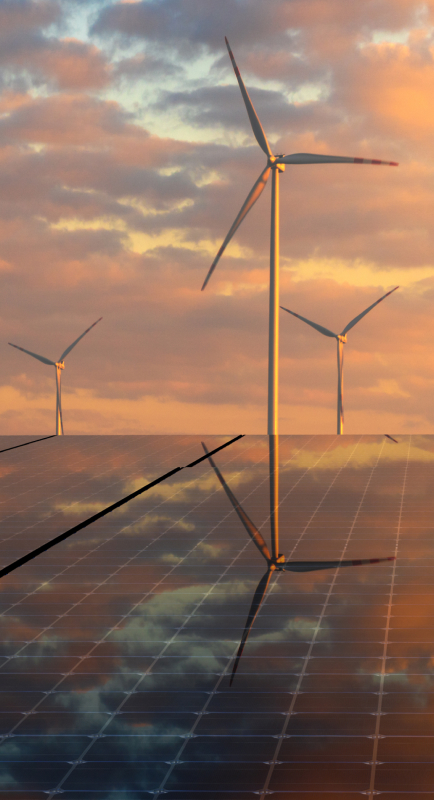11. Climate change and its impact on the accounting principles applied

Continuing climate change and the resulting changes in the business environment have an increasing impact on the operations of TAURON Group. In particular, it should be noted that combating climate change translates into a changing legal environment for the Group, including EU and national legislation gradually increasing environmental protection requirements imposed on enterprises. The above changes translate into an increase in operating costs, particularly in the area of electricity generation from conventional sources, affected in particular by rising prices of CO2 emission allowances. Climate change issues also have an increasing impact on the ability of entities to raise funding for their operations, as well as on their ability to attract new customers and investors.
Bearing in mind, among others, the challenges and risks generated for the Group by the changing market environment, in 2022, the TAURON Group Strategy 2022-2030 with an outlook until 2050 (the “Strategy”) was adopted by the Management Board of the Company. The strategy responds to the challenges resulting from the current and projected situation in the market and the electricity sector, in particular related to the transformation of the power industry and new solutions supporting this transformation. One of the three priorities underlying the Group Strategy is sustainable operations, assuming the transition of the Group towards climate neutrality and reducing emissions and achieving climate neutrality by 2050. The Group’s efforts are focused on increasing installed capacity in renewable energy, including the involvement in offshore wind energy development as well as maintaining capacity volumes and improving hydroelectric power efficiency and withdrawal from coal-fired power generation and activities related to hard coal mining and transforming district heating towards low- and zero-emission sources.
As part of its efforts to achieve its strategic objectives in the scope of climate protection and mitigate the risks arising from current and expected changes in the regulatory environment due to climate change, the Group:
- completed a transaction leading to the withdrawal from coal mining operations. On 31 December 2022, TAURON Polska Energia S.A. sold 100% of shares in TAURON Wydobycie S.A. to the State Treasury, which is described in more detail in note 3 of consolidated financial statements. As a result of the transaction, the Group will not conduct any coal mining operations starting from 1 January 2023;
- conducts actions with the aim to wind down its coal-fired electricity generation activities. In particular, during the year ended 31 December 2022, work was carried out by the Group in connection with the implementation of the governmental programme to separate coal assets from TAURON Group (NABE Programme). The aforementioned events are described more comprehensively in note 63 of consolidated financial statements;
- implements, in the framework of the TAURON Green Turn announced in 2019 and the strategy adopted in 2022, investment projects aimed at the sustainable transformation of the Group towards climate neutrality. In particular, in the year ended 31 December 2022, the Group commissioned the Piotrków and Majewo wind farms with the total capacity of 36 MW and the Choszczno II photovoltaic farm with the capacity of 8 MW. The subsidiary, TAURON Inwestycje Sp. z o.o. is building the Mysłowice-Dziećkowice photovoltaic farm with the target total capacity of 97 MW. The commissioning of the investment is scheduled in the second half of 2023. In addition, in 2022, the subsidiary, TAURON Zielona Energia Sp. z o.o. performed the acquisitions of the following companies: “Megawatt S.C.” Sp. z o.o., Wind T4 Sp. z o.o. Windpower Gamów Sp. z o.o. and Wind T30MW Sp. z o.o., under which investment projects will be implemented in the form of construction of wind farms with the total capacity of 141.1 MW, and took control of FF Park PV 1 Sp. z o.o., under which a project for the construction of a 45.6 MW photovoltaic farm is planned. The expected commissioning date for the above investment projects is scheduled in the years 2024-2025;
- monitors on an ongoing basis changes in the area of legal regulations related to the protection of climate and environment, both at the European and at the national level, as well as changes in the economic, macroeconomic or market environment. The Group considers the planned regulatory changes under the Fit for 55 package (including, inter alia, the tightening of the EU ETS, the introduction of a CO2 border price adjustment mechanism, the so-called CBAM, and the implementation of requirements to increase the share of electricity generated from RES) and the entry into force of Regulation (EU) 2020/852 of the European Parliament and of the Council of 18 June 2020 on the establishment of a framework to facilitate sustainable investments, amending Regulation (EU) 2019/2088, the so-called “Taxonomy” (introducing the criteria for the qualification of investments as environmentally sustainable and granting additional preferences to environmentally sustainable solutions, as well as imposing additional obligations on companies to make disclosures on the achievement of environmental targets) to be particularly relevant for its operations;
- took into account, as part of the assumptions underlying the estimation of future cash flows in the impairment tests conducted, current as well as planned regulatory changes aimed at achieving the climate targets set by the European Union (including, as part of the planned changes, in particular, the „REPowerEU” package, EU ETS market reform and the Scarcity Pricing mechanism). The assumptions adopted for impairment testing, including those relating to climate issues, are described in detail in note 14 of consolidated financial statements;
- has obtained financing on the domestic and foreign markets with the total carrying value of PLN 4 750 million, the terms of which indicate the allocation of funds for, among others, investment projects in the area of renewable energy sources and the reporting of certain ESC indicators, confirmed by an independent auditor and exclude the possibility of allocating funds raised under these instruments to the financing of projects related to coal assets;
- reviewed the assumed economic useful lives and residual values of non-financial fixed assets. In particular, the economic useful lives of the Group’s coal-fired generation assets, covered by the NABE program, do not exceed the prospect of the Group’s climate-neutral moment included in the Strategy, i.e. 2050, with the exception of the 910 MW unit in Jaworzno, in relation to which a longer economic useful life (until 2060) is justified by the need to ensure the security of the power system. The assumed economic useful lives by individual generation assets are detailed in note 14 of consolidated financial statements;
- recognised provisions on the basis of the Group’s existing legislation, which imposes requirements on companies to implement climate protection-oriented measures, in particular provisions for liabilities for energy and CO2 certificates of origin and provisions for the costs of rehabilitation and dismantling and decommissioning of fixed assets. The aforementioned provision is presented in notes 43 and 44 of consolidated financial statements.

